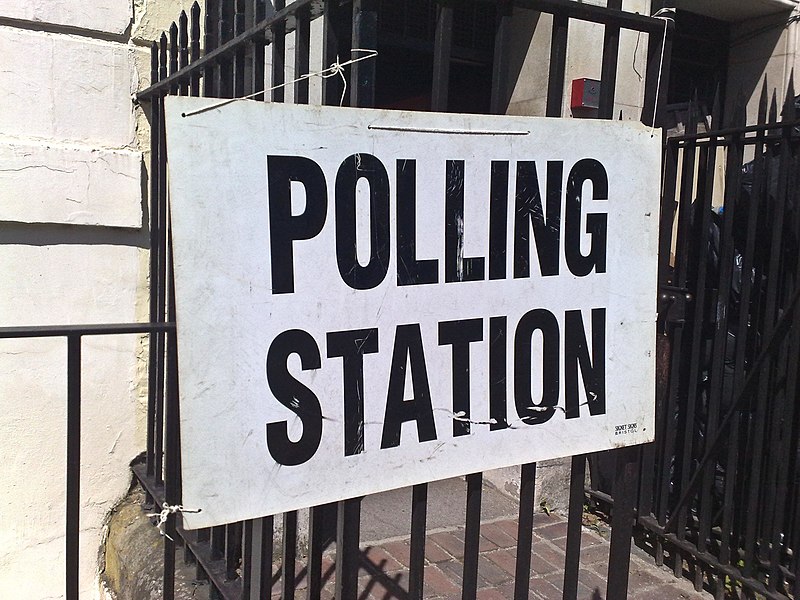
In politics, certain years will always be looked back on as pivotal. 2016. 2008. 1933. As January rolls around, it’s not always easy to tell which years will leave a lasting legacy, but you don’t need to be a ‘super forecaster’ to realise that 2024 is going to be a big one. In purely numerical terms, never before has a single year seen so many of the world’s citizens voting, as more than four billion people get the chance to head to the ballot box. With more than 60 countries going to the polls, it would take an entire print edition of Exeposé to look ahead to them all, so here’s 5 worth keeping your eye on.
(Dis)Honourable Mentions: Russia, Iran and North Korea
Before starting with the list proper, it’s worth considering the major powers that are technically going to the vote this year, but aren’t fooling anyone in how fair said vote will be. Two years and a month after its illegal invasion of Ukraine, Russia will hold it’s Presidential election in March, but given that Putin’s political opponents have an unfortunate habit of being randomly shot in the streets, falling out of windows, or ending up in Siberian gulags, its safe to assume that the incumbent will coast fairly smoothly into his 25th year at the helm. Also in March, Iran holds legislative elections to its Parliament, but applicants require approval from the ‘Guardian Council’ of clerics, which is famously sweeping and biased in its disqualifications, eliminating 43% of candidates last time around, the majority of which were reformists or centrists. And, abandoning any pretence, the North Korean ballot papers quite literally offer one name only.
Taiwan – 13 January 2024
The most imminent of these elections holds a significance that far outweighs the amount of people who will be voting in it, or the size of their island home. Taiwan has an almost uniquely complicated and unstable position in the world (you can read about it here), and inevitably, the upcoming election pivots around the issue of relations with China. The two main political parties, the incumbent DPP and the opposition KMT have opposing views. The DPP favour a strong sense of Taiwanese identity and want to keep China at an arm’s length, whereas the KMT favours closer ties. While it’s not quite as simple as a DPP election leads to war and a KMT election leads to reunification, the election result will be a key indicator of Taiwanese sentiment, and inevitably have seismic impacts for the future of the region.
India – 1 April 2024
The rise of India as a political and economic powerhouse over the last 30 years has been staggering. In 1998, it officially joined the small club of countries to possess nuclear weapons; between 2005 and 2021 it would lift 415 million people out of poverty, and its now been predicted, by Goldman Sachs, to run the world’s second-largest economy by 2075. Narendra Modi has led the country since 2014, and among rising tensions between Hindus and Muslims, he seeks to gain his third term in power at the early-summer election. While his role in elevating India’s global position is undeniably impressive, Modi has presided over anti-Muslim policies and discrimination, as well as crackdowns on freedom of expression and the press. He faces a coalition of all India’s major opposition parties, operating under the unimaginative acronym INDIA, but after sweeping success in December state elections, it seems likely Modi will remain incumbent.
European Union – 6 June 2024
Maybe not as relevant anymore from a British perspective, but certainly in a global context, the EU, and by extension its parliamentary elections, matter more now than at any point in recent memory. Europe is facing a dizzying array of huge challenges; the return of full-scale war to the continent, the rise of the populist far-right, and the increasingly urgent climate crisis to name a few. Reflected in this is a series of polls showing that interest in the elections among European voters has increased significantly since the last round in 2019. Despite the desperate need for increased European cooperation, its predicted that nation-first, Farage-esque Eurosceptic MEPs, are going to make significant gains.
United States – 5 November 2024
It’s a rare occasion that the US election entails a Presidential rematch, but barring a rapid acceleration of legal proceedings or a rapid deceleration of health, it seems inevitable that the ballot paper will feature the names Trump and Biden. There’s many articles out there on what a Trump second term will look like, based on what’s been signalled by Trump and his team, and they all agree that it will likely make his first term look moderate by comparison. You can read about some of the radical proposals here. For Biden to steer the country away from this future is a task complicated by factors including American involvement in the Israel-Hamas war, and crucially, his age. His public perception as being ‘old and confused’ is perhaps the biggest obstacle on his path to re-election.
United Kingdom – Mid to Late 2024 (Probably)
The Prime Minister has indicated that the upcoming general election will take place “in the second half of this year” and unlike the American contest, which polls indicate is currently neck and neck, the UK election is forecasted to be a Conservative wipeout. After thirteen years of Tory government, the chickens of austerity, Johnson’s handling of the pandemic, and Liz Truss’ disastrous premiership are all coming home to roost, leaving Rishi Sunak with a seemingly impossible mountain to climb. Every now and again, Starmer’s path to election hits a bump, the most significant of which was a recent mini-rebellion over the party stance on Israel-Gaza, but the polls always bounce back, and it would take something extraordinary for the Labour leader not to emerge victorious. But then again, we live in extraordinary times.


